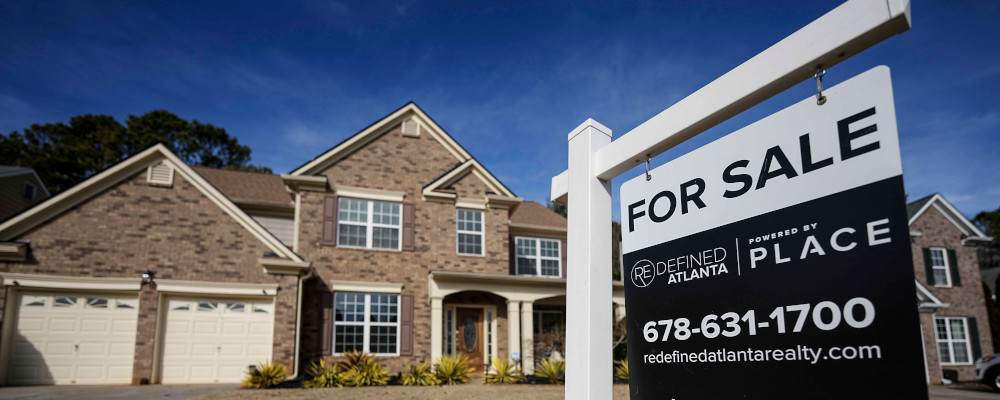As a Millennial, I often hear from Boomers that Millennials just need to wait long enough for their parents to die, and then they’ll be able to afford a home. It’s mind-boggling to me that so many smart people have disclosed such a morbid thought with a straight face. Waiting for your parents to die is a terrible financial plan, but relying on your parents’ money to buy a home has sadly become the norm in Canada—with some pretty serious consequences for our country.
A 2021 report from CIBC found that a third of Canadian first-time buyers got help from their parents, with an average gift of $82,000. It found that 10 percent of total down payments came from family help. Focus on Toronto and Vancouver and the average amount rose to $120,000 and $180,000 respectively. That this is necessary is unsurprising given that as of December 2023, the national average price of a home in Canada was $657,145 (rising to $853,915 in Ontario and $965,447 in British Columbia).
Clearly, not every family can afford such generous contributions to their children’s homes, especially when you think about families with multiple kids. Factor in that housing has become more unaffordable because the steep rise in interest rates has not been met with enough of a drop in prices in many places, most notably the greater Toronto and Vancouver areas, to balance the scales.

As such, many parents are taking equity from their homes to help their kids get on the property ladder. And yes, that’s always happened, but it’s multiplied nowadays both in instances and by the amount.
Indeed, Statistics Canada reports that Millennials born in the 1990s are twice as likely to own a home if their parents are homeowners, and three times as likely if their parents own multiple properties.
It’s created this incredibly unfair situation, where people with poor parents have to compete with people with wealthy parents. It’s completely unjust that some would-be homebuyers are out of luck simply because their parents didn’t or couldn’t afford to invest in real estate.
This state of affairs is raising some very important questions: what happens to people whose parents were not able to buy a home? What about those who have to spend their home-sale money on their own long-term care instead of passing it on to their kids? What if they simply don’t want to leave money to their children? Or, what if they have several children and there isn’t enough to go around for everyone to receive a down payment?
A society that requires a large wealth transfer in order to buy a home is a broken society. Policymakers and everyone else who is comfortably housed need to get over the idea that the housing crisis will solve itself through a giant wealth transfer. There needs to be a better way for Canadians to access family-sized homes during the time in their life when they’re most likely to be raising a family.
It’s always been the case that those with family wealth had the advantage of financial security, but typically, when Boomers were looking to buy their first home, they could drive somewhere within commuting distance and find something, even if it wasn’t their ideal home or location.
Nowadays, people can forget driving until they qualify for a mortgage—they have to fly until they qualify, leaving behind their jobs and support networks.
It’s no surprise that Canada recently hit historic lows in birth rates, and I wouldn’t be surprised if we start seeing in the data an even more substantial decrease in birth rates among those who had to move away from family in order to buy a home. Raising children is expensive and doing so without a community of friends and family is unappealing to many and comes with many more challenges.

This financial reliance on parents also puts Millennials and younger generations in an odd position, infantilizing them as they are forced to rely on parental gifts to pay for their homes.
One of the lessons I’ve learned from understanding this data is to never feel like I’m not doing enough when I see friends with bigger and more beautiful homes, or going on much nicer vacations than I could ever afford. I now assume that many of my friends and acquaintances received substantial family help.
No one has imprinted this into my mind better than financial planner Shannon Lee Simmons in her book Worry-Free Money. If you don’t know someone’s financial situation—even if you know their income—assume they have Beyoncé money, because they just might have access to a vast amount of wealth. Trying to keep up with your friends is a recipe for financial ruin, not to mention a lot of anguish and frustration. And Millennials are already incredibly indebted and hit harder than older generations by interest rate increases.
As a Millennial, I’ve seen people with relatively high incomes priced out of ever buying a home, and I’ve seen friends making median salaries or less buy stunning homes. But income only shows you a small slice of someone’s financial pie. In fact, income plays a surprisingly small role in whether you can afford a home. What is increasingly more important is when your parents bought, and how much they are willing or able to help you out. This is particularly challenging for newcomers, whose parents weren’t in the country to ride the great Canadian real estate wave.
That needs to change if we want a fair society—and not to mention, if people want to live anywhere near their grandchildren!




